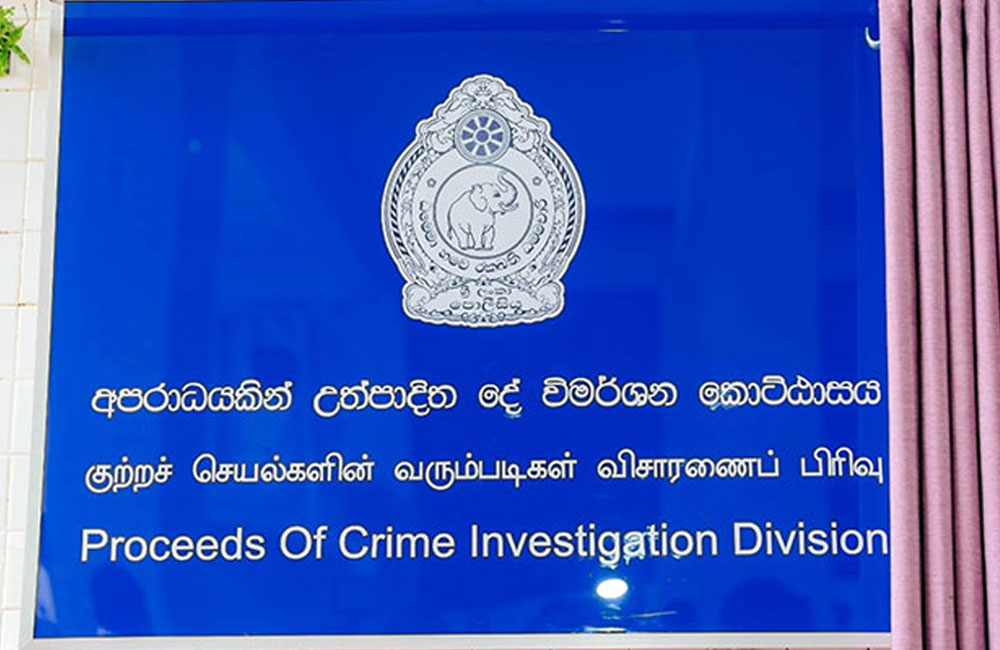In a decisive move to combat entrenched corruption and criminal profiteering, the Sri Lanka Police has established a powerful new investigative arm the Proceeds of Crime Investigation Division (PCID) to trace, seize, and recover wealth acquired through illegal means.
The PCID, set up under the newly enacted Proceeds of Crime Act, represents one of the most ambitious anti-corruption measures introduced by the new administration. It will operate directly under the Inspector General of Police (IGP) and collaborate with the Commission to Investigate Allegations of Bribery or Corruption (CIABOC) and other enforcement bodies to target both public officials and criminal networks suspected of amassing illicit fortunes.
Officials say the new division will focus on the investigation, restraint, forfeiture, and disposal of assets linked to offences such as bribery, money laundering, drug trafficking, and organized crime. Importantly, the Act allows non-conviction-based forfeiture enabling the state to seize suspicious assets even before a criminal trial concludes, closing a loophole that has long shielded politically connected offenders.
The unit will be headquartered at the Old Police Headquarters in Colombo 01 and formally inaugurated by Public Security and Parliamentary Affairs Minister Ananda Wijepala, alongside IGP Priyantha Weerasuriya.
According to police data, over Rs. 4.5 billion worth of properties have already been seized in recent operations against organized crime, including luxury houses, vehicles, jewellery, and boats. A further Rs. 57 million in cash has been confiscated and placed under legal restriction in line with the Money Laundering Act.
The establishment of the PCID reflects a growing shift in the government’s anti-corruption strategy — away from reactive investigations and toward financial disruption of criminal empires. Analysts note that the move signals an intent to go beyond rhetoric and tackle the economic roots of corruption.
However, experts warn that the division’s success will depend on political will and transparency. “Laws are only as strong as their enforcement,” said a former senior investigator. “If the PCID can operate independently, it could mark a real turning point in Sri Lanka’s fight against illicit wealth.”
For now, the new government’s message is clear: corruption and criminal enrichment will no longer go unchallenged. Whether this latest initiative can finally bring accountability to powerful circles remains the country’s next crucial test.

Leave your comments
Login to post a comment
Post comment as a guest